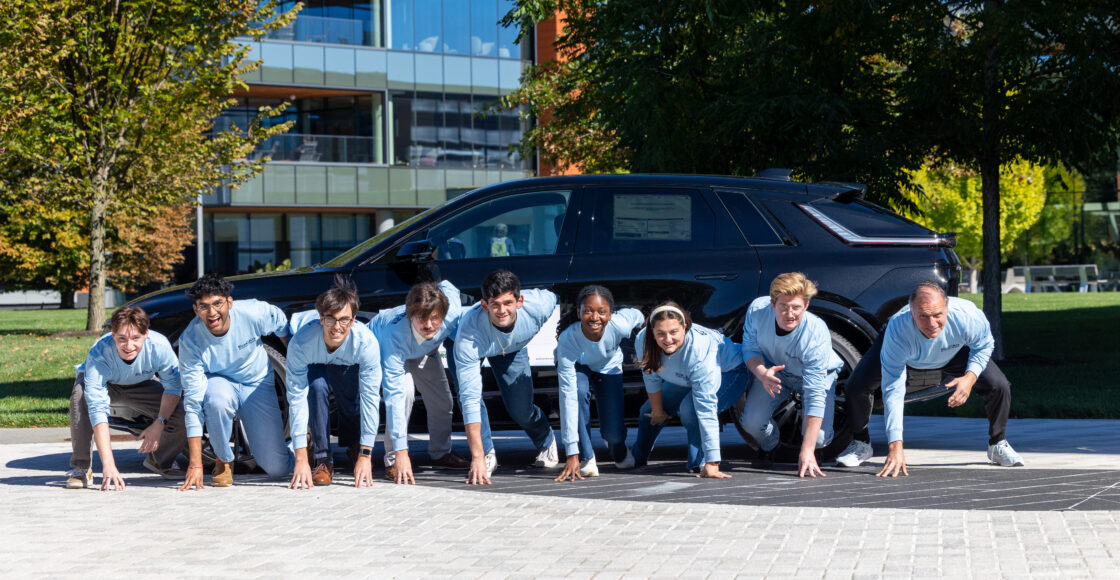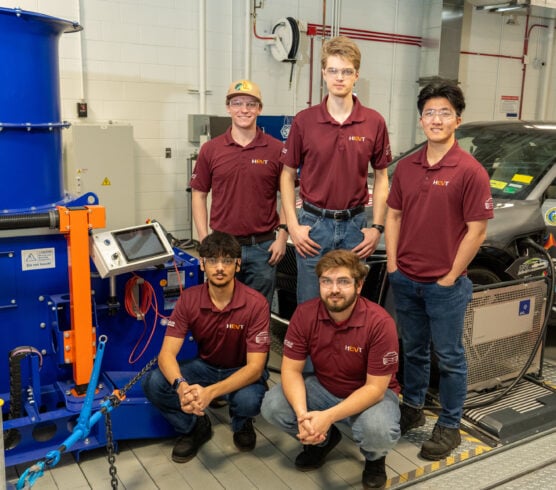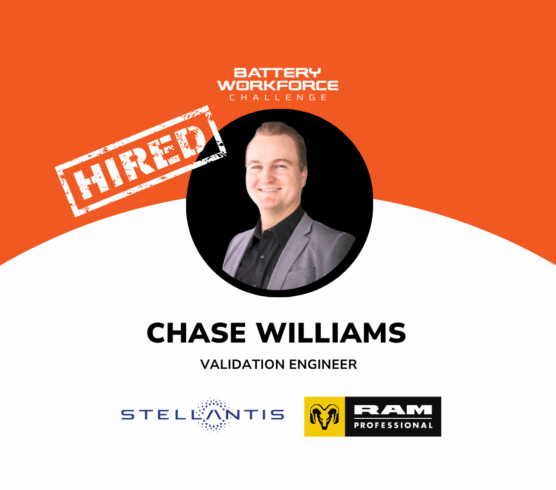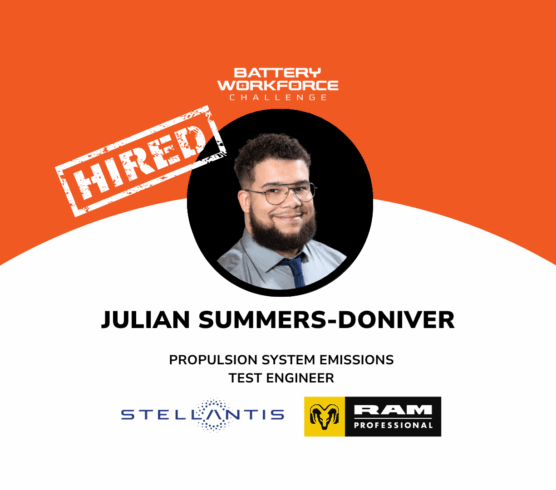Written by: Ashley Kronsell Oller, Argonne National Laboratory, and Katelyn Finn, Virginia Tech
This Year’s EcoCAR Fall Workshop at the MathWorks headquarters in Natick, MA, marked the official kickoff of the fourth and final year of the EcoCAR EV Challenge.
EcoCAR’s Fall Workshop brings together student innovators and industry leaders for an immersive, hands-on experience that bridges classroom learning with real-world engineering. This year, 125 students and faculty from 15 universities joined 50 industry professionals for 145 hours of technical, project management, and communications training.
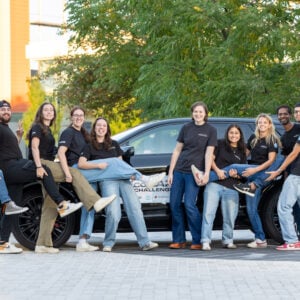
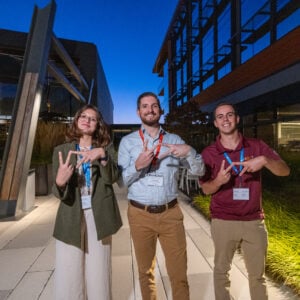
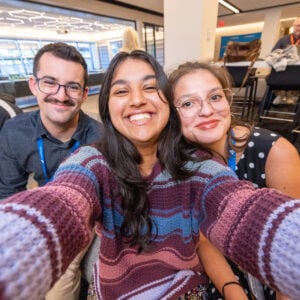
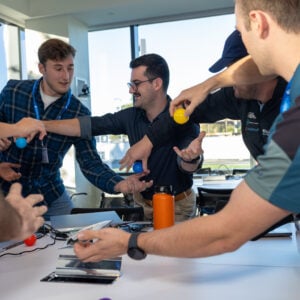
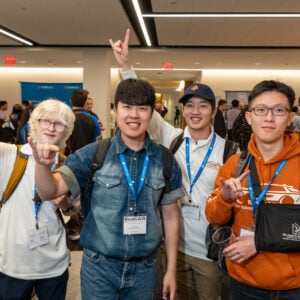
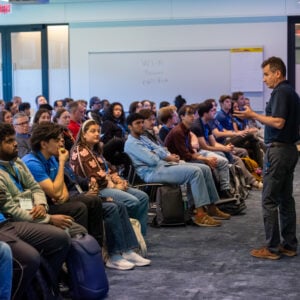
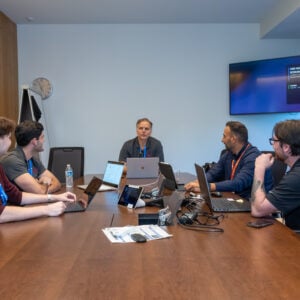
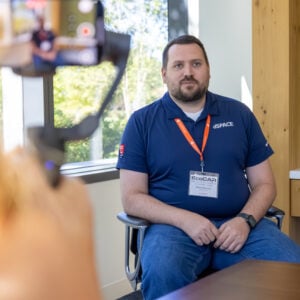
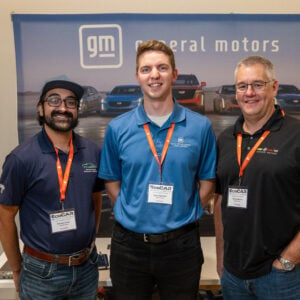
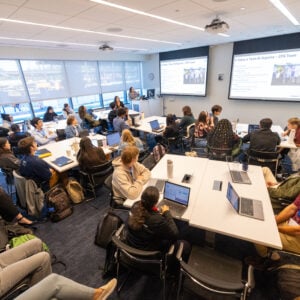
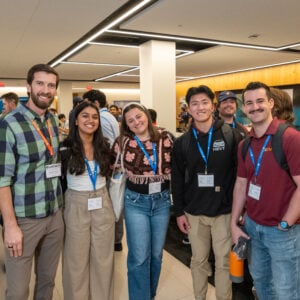
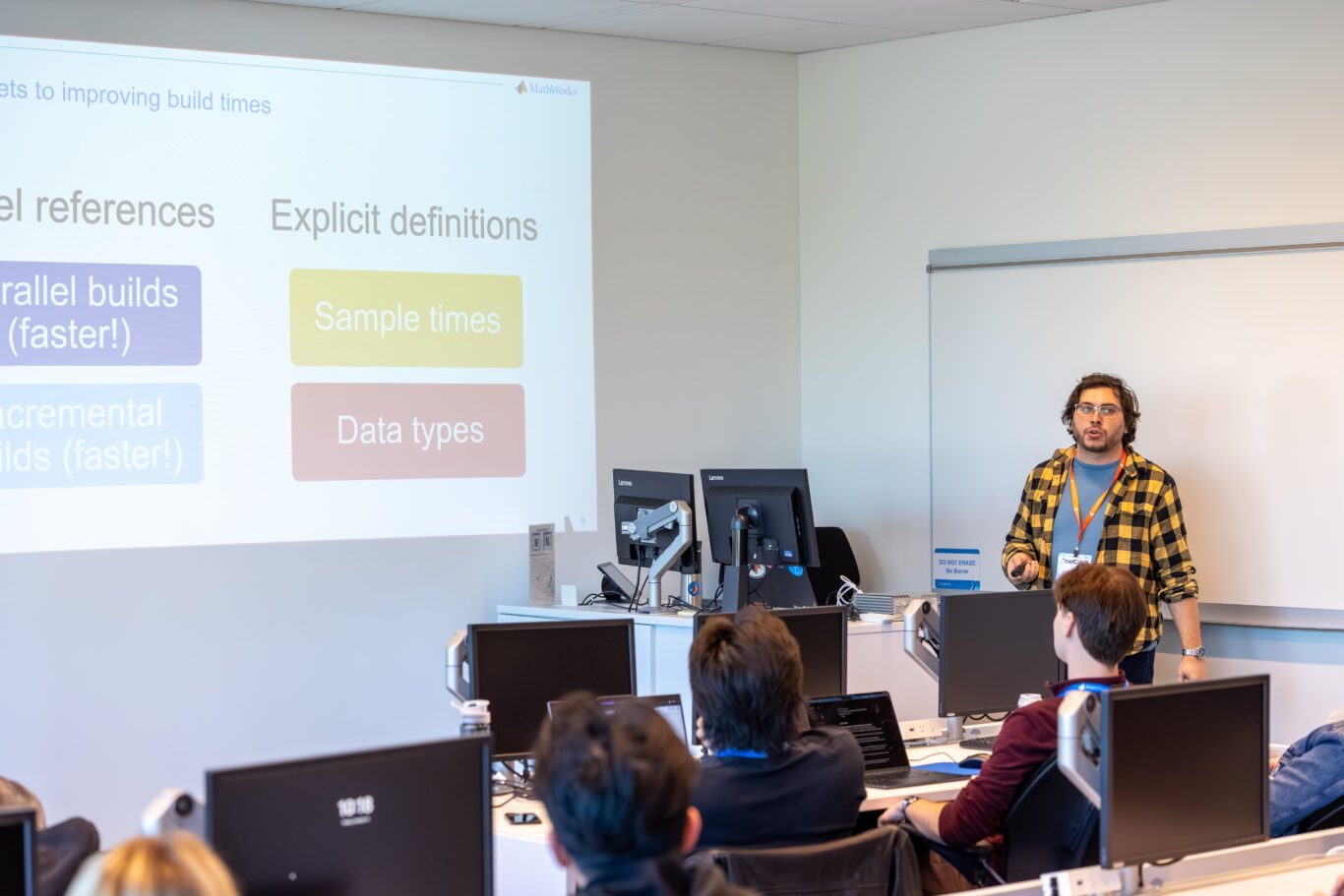
Throughout the workshop, students strengthened essential engineering and professional skills while forming meaningful mentorship connections. From Speedgoat Performance to Project Assurance Reviews and Building a Career in Social Media, Fall Workshop training focused on practical applications of industry tools and strategies. Students explored MathWorks’ Reinforcement Learning Toolbox and dSPACE’s AURELION platform for sensor simulation; resources that are critical for developing AI systems in autonomous vehicles.
“Our sponsors have many software resources to help develop AI systems,” HEVT CAVs lead, Jacob Johnson, shared. “These tools are essential for building intelligent, responsive systems.”
Students dove into diagnostics and fault management during Subject Matter Expert (SME)–led circuits. “At Fall Workshop, I had the opportunity to sit down with SMEs and learn more about our vehicle’s subsystems,” said Tony Weng, HEVT PCM lead. “Some key takeaways include objectively determining when to set faults within our system, how to use data to drive diagnostics, and troubleshooting our software in Simulink.”
With guidance from industry experts, including 22 AVTC alumni, teams gained valuable insight into the tools, techniques, and expertise shaping today’s automotive landscape. “EcoCAR connects students with industry experts by hosting training sessions about practical issues from an industry perspective,” Johnson said. “We get incomparable access to professionals who help us become the industry leaders of the future.”
A key element of the workshop focused on the rapidly evolving landscape of artificial intelligence and machine learning (AI/ML) in mobility. Organizers from Argonne National Laboratory designed and led a day-long AI Workshop aimed at preparing EcoCAR students for future careers in AI-enabled mobility and advanced vehicle technologies.
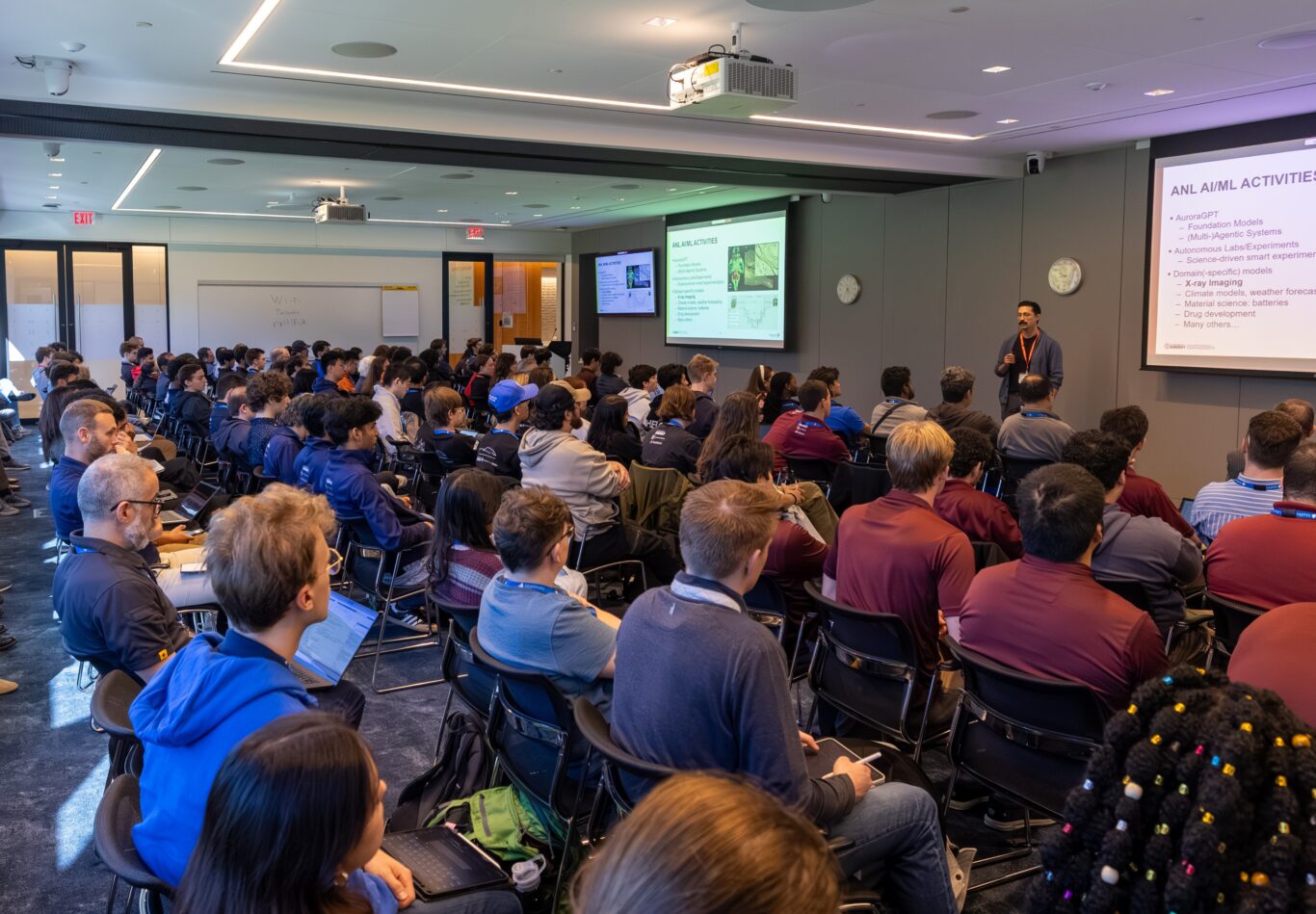
EcoCAR sponsors provided in-depth training on the following topics:
- Generative AI in Research and Data Privacy: Argonne’s Matthew Dearing demonstrated how Generative AI is transforming scientific research, highlighting its applications across the breadth of science at Argonne. The session also emphasized responsible, ethical, and secure use of AI, providing critical guidance for integrating advanced AI methods into research and engineering workflows.
- Generating Synthetic Data for AI Training using dSPACE AURELION: Max Nelson discussed practical uses of dSPACE’s AURELION simulation platform to create high-fidelity synthetic datasets for training and validating AI perception models, gaining insight into how synthetic data accelerates AI development.
- Integrating AI Models into RTMaps for Real-Time Perception: AVTC Alumni, Zachary Flanigan, introduced students and faculty to the process of integrating and deploying AI models within RTMaps (Real-Time Multisensor Applications) for real-world applications. This session gave EcoCAR participants hands-on experience building an RTMaps application that leveraged AI models for real-time perception and decision-making.
- Introduction to Reinforcement Learning for Automotive Applications: The session, led by MathWorks’ Jordan Olson, introduced the fundamentals of Reinforcement Learning (RL) and its application to motion planning, control, and risk management, illustrating how RL is driving innovation in next-generation vehicle systems.
In addition to the technical sessions, Argonne & MathWorks hosted a roundtable bringing together Argonne researchers, university faculty, and industry sponsors to discuss AI adoption, workforce development, and long-term collaboration opportunities.
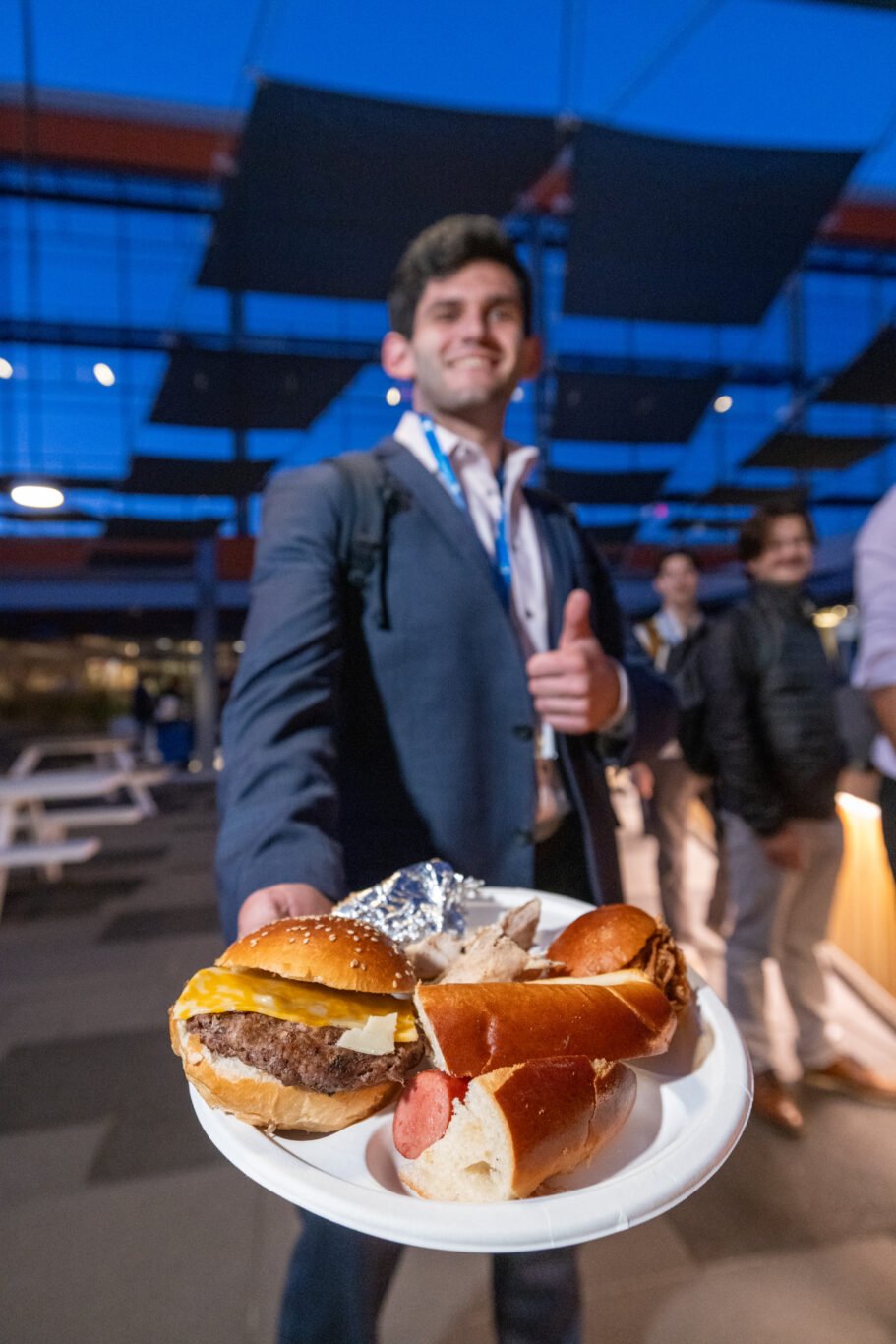
Aside from training, the Fall Workshop also featured a Team Appreciation Night, complete with New England favorites like lobster rolls and clam chowder. This year’s Sponsor Social gave students seeking full-time jobs or internships the chance to connect directly with EcoCAR sponsors, resumes in-hand, and explore opportunities to jumpstart their careers. We are grateful to the participating sponsors:
- AAM
- Altec
- Amphenol
- dSPACE
- General Motors
- Judd Wire
- MathWorks
- NXP
- PACCAR
- TCCI Manufacturing
- UICO
The EcoCAR Fall Workshop exemplifies the Advanced Vehicle Technology Competition (AVTC) mission to empower students through experiential learning and professional mentorship. By collaborating with sponsors and SMEs, students gain the tools, insight and confidence to lead to the evolving field of mobility.
A special thank you to our sponsors, our host MathWorks, and the dedicated students and faculty from all our participating universities who made this year’s workshop a success.
Take a look at some of the highlights from the event: Fall Workshop Photo Album
